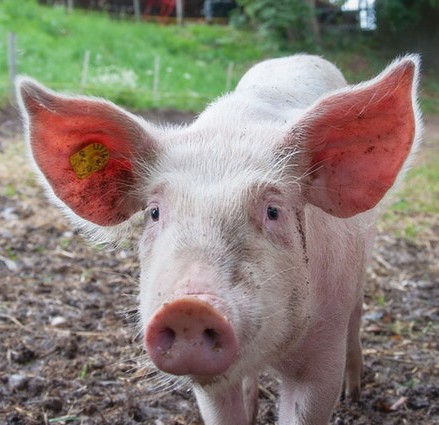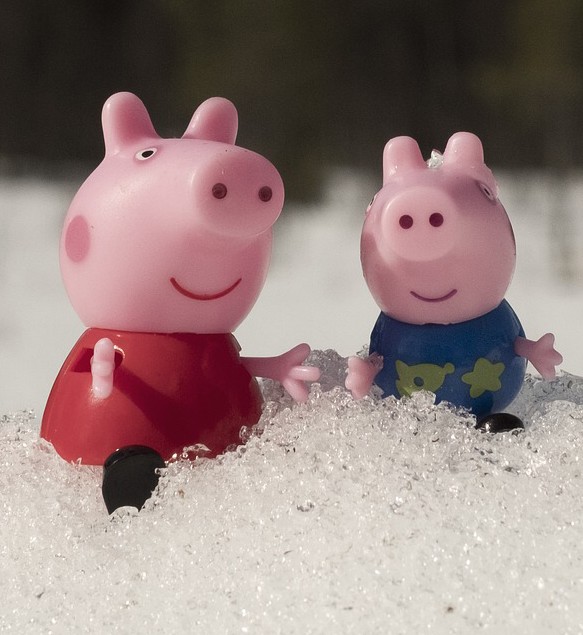In my recent blog, Taboo topics- A Yankee in the UK, I promised to try and address all the topics not represented in most English language textbooks, namely: Politics, Alcohol, Religion, Sex, Narcotics, -ISMs and Pork, or PARSNIP, in short.

I can somehow understand, although not approve of, the exclusion of topics like sex when teaching languages. Any parent will surely agree that it is not very comfortable to deal with certain questions our offspring sometimes have, and it apparently does not get any better when teaching older students. Although one might argue that it is uncomfortable precisely because this topic has been a taboo in our culture for far too long. Ok. No sex. I get it. But why the hell PORK?
I might be mistaken, but I think it could have something to do with other taboo topics, specifically RELIGION and perhaps POLITICS. There are religions in our world that forbid their followers from eating pork. Although I am neither a Judaist nor Muslim, I do not eat pork either, but that does not make me look with disgust at the people who do.

Pigs, the animals whose meat is for some funny historical-linguistic reasons called pork, are regarded as impure in some of those religions, which is why they do not have the dubious honour to form a part of some people’s diet. Frankly speaking, I have a general issue with the unfortunate human tendency to feel superior to somebody or something, whatever it is. It addresses some of the most disgusting human treats that lie at the roots of some –isms that haven’t been discussed here yet, but perhaps they will. Whenever, in the course of human history, one group of people committed atrocities, as the Nazi did when they were mass-murdering Jews during the second world war, they justified such acts of cruelty by the claim that their victims were subhuman, and that killing them off was, therefore, in the best interest of Mankind.
Sure, genocide is commonly considered wrong, because it is our fellow humans that we are dealing with, but pigs? They are not humans, so why bother? Well, they are not, and we certainly do not treat them as such. We eat them, for God’s sake – although some gods seem to disapprove. I believe that in the grand scheme of things, we are all equal, we are all one. We are not that much above the animals so that we may feel entitled to despise them. As far as I know, none of us, humans, was born a human, because he deserved it, although the Buddhists with their karma teachings may disagree. As we did nothing to deserve the honour to be born human, we have no right whatsoever to look down on those creatures that were born to be something else. Well, born or hatched or came to be in any other way. Because they did neither choose nor deserve their fate as well.

To feel superior to other lifeforms is, in my opinion, a sure sign of lack of perspective and a symptom of a severe inferiority complex that we compensate for exactly by this ostentatious contempt for those who are not like us. Although we may need, for practical reasons, to kill and eat other living creatures, it is no reason for us to hate them, treat them with disrespect or label them as spiritually unclean.
I may even go as far as to say that dirty, impure and smelly as pigs may seem, none of them needs to feel ashamed for the things their kind did in the past, are still doing and are likely to do in the future. Unlike us, the humans. So, who is the impure one here?
According to this article, are the following statements True or False?
(key here)
- Sex should be excluded from language textbooks.
- The author does not eat pork and he hates the people who do.
- The people who despise pigs are in some way similar to the people who commit genocide.
- We are humans because we have good karma.
- People who feel superior may suffer from some neurotic conditions.
And to conclude on a lighter note, let’s see how pigs can help you learn languages. If you feel, for whatever reason, offended by the sight of walking, talking, happy pigs, you should probably stop reading. On the other hand, if you really are like that, I am pretty sure you are no longer reading this anyway.
There is a world-famous family of pigs living a happy suburban life. The father goes to work, his wife runs the household and their two kids learn about the world around them. It is through the older daughter’s eyes that we follow their everyday adventures. I often use this series to teach English and Spanish, because it is precisely the kind of everyday practical language that is sometimes so painfully absent in formal textbooks. The language is natural, not specifically fine-tuned for students. So there is no weird overuse of one grammar structure as we often see in schoolbooks. On the other hand, the language is simplified the way that adults talk to their kids. Short sentences, lots of explanations and examples. It is meant for children, but, fortunately, the creators of the series were aware that a huge number of parents would be forced to watch these episodes with their kids, over and over again, so they mercifully included some jokes that only adults can understand and that the kids wouldn’t even notice. So, without further ado, let’s watch Peppa Pig going to the library. And as you do so, you may try to complete the following task.
According to the video, are the following statements True or False?
- When going to bed, Peppa accidentally found a book her father had lost.
- Daddy Pig reads from his book because he wants to teach his kids about building.
- When entering the library, Peppa breaks a certain rule.
- The librarian is very angry with Daddy pig and refuses to lend him any more books.
- Daddy borrows the same book about concrete again.
- Peppa borrows the same Red Monkey book again.
The key to the comprehension tasks can be found here.
The vocabulary used in both task can be found on QUIZLET. To learn how to use Quizlet to improve your English, consider reading „O důvodech a řešeních.“ If you speak Czech, that is.
